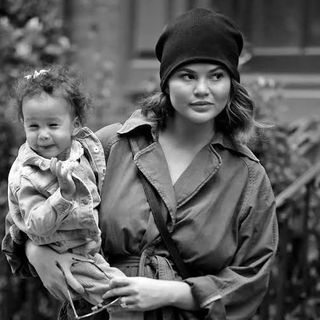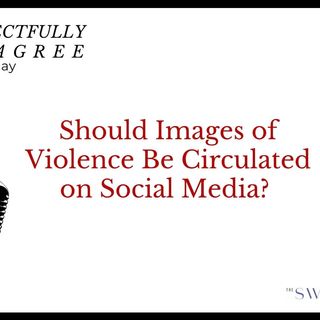
Guilty Is a Faulty, Yet Progressive, Attempt to Make Us Believe All Sexual Assault Victims
The film’s portrayal of a reckoning with sexual assault falters due to its caricatured characters.

A certain mix of dread and cringe envelops me before I sit down to watch a film with a #MeToo storyline, especially considering the Bollywood film industry’s need to rely upon trauma porn and hysterical survivors as a pathway towards the protagonist’s character development. Guilty, directed by Ruchi Narain and written by Kanika Dhillon, Ruchi Narain, and Atika Chohan, is guilty of all of the above — yet in a way that isn’t all that bad.
Nanki (Kiara Advani), the protagonist in Guilty, is dating VJ (Gurfateh Singh Pirzada), who is accused of rape by Tanu (Akansha Ranjan Kapoor). Danish, (Taher Shabbir) a lawyer assigned to the defamation case that VJ’s family files against Tanu, finds himself questioning the ethics of defending the alleged perpetrator as the case proceeds. All characters initially begin as caricatures — Nanki, sporting dyed hair and tattoos, sincerely writes “Fuck” in a notebook and flips off a camera so we know she’s cool; VJ is rich, is the son of a politician, and exploits his privilege, so we know he’s awful; Nanki and VJ’s friends seem to exist only to call Tanu a whore and occasionally follow VJ around; and Danish (Taher Shabbir), the rookie lawyer who comes to question his participation in the defamation case VJ’s family files against Tanu, cannot help but Sherlock Holmes his way through. Textbook.
As the film proceeds, Nanki is peeled, layer by layer, to reveal neither truly good intentions nor truly bad. We soon realize that this film isn’t really about the survivor or the perpetrator, but a coming-of-age focused around Nanki’s internalized distrust of the loud, shameless woman who claims her trauma, which morphs into the realization that survivors of assault are never spared distrust.There has never been an ideal rape survivor. Society often mistakes personal dislike and/or internal, preconceived notions of what kind of people a rapist and rape survivor are for reasons not to believe a survivor’s story. Distaste for how a woman dresses becomes a reason to assume she’s lying; socialized trust in men in positions of power becomes a reason to distrust the women who accuse them. In Guilty, Nanki’s own personal dislike and her inability to come to terms with her boyfriend’s potential to rape lead to her strong belief that Tanu is a liar.
Related on The Swaddle:
Stop Looking for the Perfect #MeToo Victim
Nanki, who believes her boyfriend engaged in a consensual encounter rather than rape, has had only two negative encounters with Tanu prior to her going public with her story. One, along a hackneyed class angle, in which Tanu comes across as someone who manipulates her small-town girl status to get Nanki in trouble, and another, in which Tanu is the homewrecker destroying Nanki’s relationship. With these incidences in mind, it becomes significantly easier for Nanki to choose to believe her boyfriend over Tanu — even though self-doubt over her choice to believe this keeps chewing at her throughout the film. Her eventual public declaration of Tanu as a liar comes from her personal dislike for Tanu, rather than whether she actually thinks Tanu faced violence or not.
Just so, Tanu’s defamation case and social media trial are heavily dependant on how people think she behaves. She’s judged as a victim when there’s a gag order placed against her, and judged as a perpetrator when the defense can prove she’s an extortionist. Again, none of this is related to whether what happened to her actually happened or not — what Guilty gets right is that people are easily distracted by their own personal opinions over what is objectively true. As Nanki grows as a character, she understands the way societal brainwashing pushed her to become a person who refused to believe a rape survivor, rather than the type of person whom she wished had been there for her during her own time of distress — a gradual realization so visceral that it deeply affects her mental health.
Related on The Swaddle:
Backlash Against the #MeToo Movement Shouldn’t Overshadow Its Significance, Successes
The film is not without its faults — there’s a handful of subplots and characteristics that make no sense; the depiction of college life is deeply corny; Nanki’s character receives three sub-plots that lead nowhere while the other characters are rendered caricatures. Even Tanu, the survivor, is caricatured to the point of cringe — almost as if the writers attempted to use every stereotype available in order to drive the point home that we must believe the survivor regardless. One almost wishes Tanu was afforded half the multitudes that Nanki is, considering how the plot hinges upon Tanu’s story. But Tanu, the loudest, most fearless, and headstrong character in the film, is rendered mute eventually, as Nanki’s own coming-of-age is given significantly more priority. While using Nanki’s lens to tell the story is refreshing, the plot’s unwavering focus on her during a much more serious situation grates eventually.
Guilty is not a failure. If one manages to shake the initial cringe away, the film brings forth multiple commendable points and provides an accurate enough — if crass — depiction of public victim-shaming and -blaming. Minus its random sub-plots, caricatured characters, and general melodrama, the film does place an important lesson into the public mindset: one can never say that all potential survivors of assault are speaking the truth, but it is definitely the right thing to do until the truth reveals itself.
Aditi Murti is a culture writer at The Swaddle. Previously, she worked as a freelance journalist focused on gender and cities. Find her on social media @aditimurti.
Related


Respectfully Disagree: Should We Circulate Images of Violence on Social Media?
